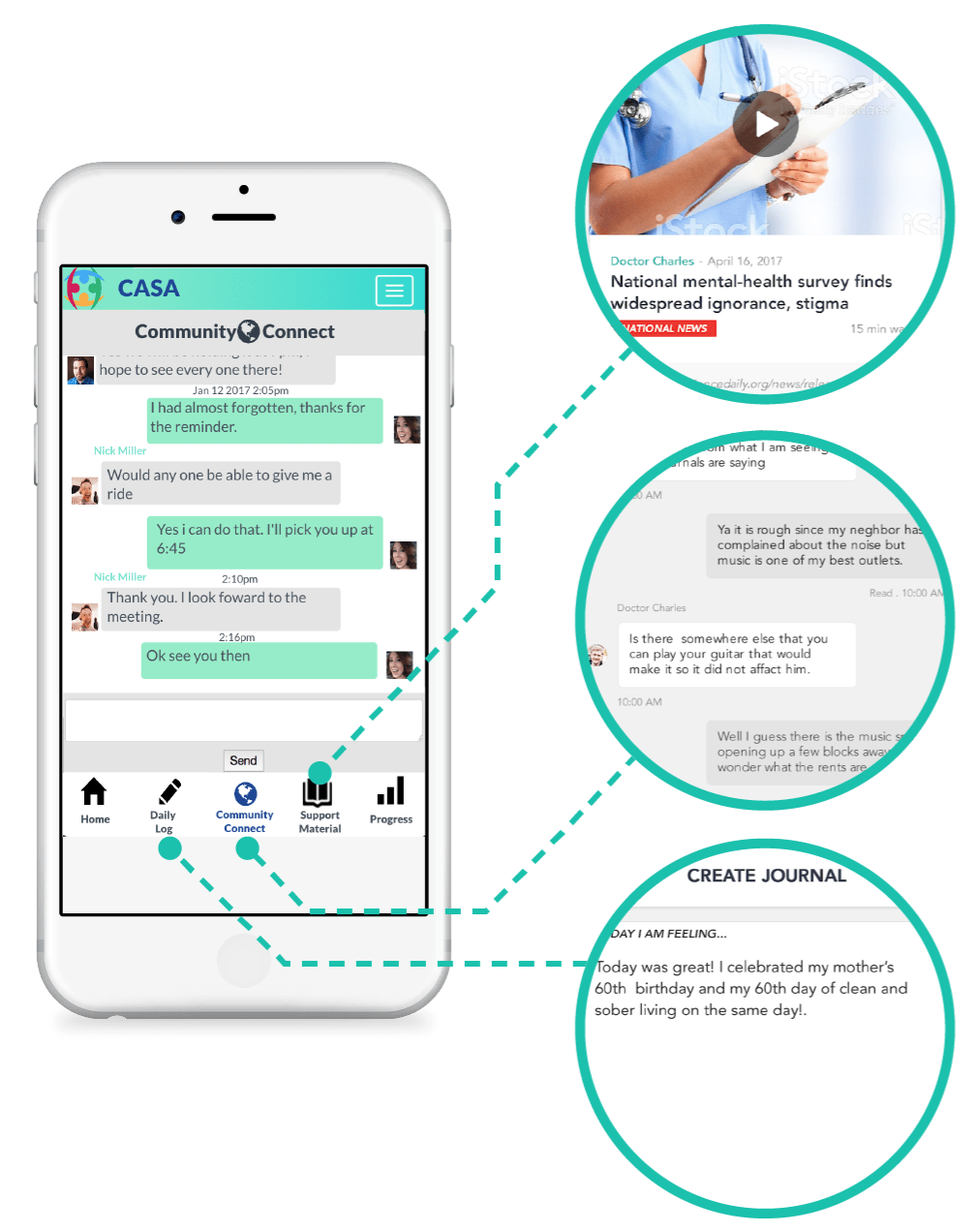Tech company to test out smartphone app connecting those released from NH jails with recovery services
The digital technology aims to improve long-term recovery from SUD, reduce relapse and recidivism rates, and support successful reentry and transition into the community for justice-involved individuals.


CONCORD, NH — A Boston tech company has been awarded a grant to test out digital tools that could improve outcomes for those exiting the criminal justice system who have been treated for substance use disorder.
Boston-based Q2i, a provider of digital health technology was awarded the $229,046 grant through the National Institute on Drug Abuse, part of the National Institutes of Health (NIH). [More grant project details here.]
Background
With over 12 million people arrested annually, the United States incarcerates more people both in absolute numbers and per capita than any other country in the world. Social determinants of health (SDOH) such as living conditions and access to healthcare can significantly affect health outcomes — especially for recently-released justice-involved individuals with substance use disorders (SUD). Justice-involved individuals have four to nine times the rate of SUD than the general population and four times the rate of mental health disorder.
The lack of effective support solutions that comprehensively address SDOH for these individuals results in a high percentage of individuals being rearrested, experiencing overdoses and overdose deaths.
Phase 1 of the research study will focus in New Hampshire prior to expansion across the nation. According to NIH, New Hampshire is among the top five states with the highest rate of opioid-involved deaths, with more than twice the average national rate in 2017.
Worcester Polytechnic Institute is Q2i’s academic partner for this project with Dr. Bengisu Tulu leading the research team that will evaluate and optimize Q2i’s digital health technology (OARS-VC).
“The technology breakthrough to be developed, will give recently released justice-involved individuals with SUD, with a focus on opioid use, access to a smartphone application that provides information and connections to services (including, employment, food, transportation, support groups, health care) and related organizations including treatment programs, to help support and improve reentry into the community post-incarceration,” Tulu said.
The digital technology aims to improve long-term recovery from SUD, reduce relapse and recidivism rates, and support successful reentry and transition into the community for justice-involved individuals.
“Helping Granite Staters and Americans get on the road to recovery requires innovative and thoughtful approaches,” said U.S. Senator Maggie Hassan. “Individuals who have been recently released from the justice system can face some of the toughest barriers when it comes to recovery, I am glad to see companies like Q2i receive the federal support that they need to develop digital tools to help these individuals re-enter society and reduce the likelihood of relapse or recidivism.”
NH Department of Corrections Commissioner Helen Hanks sees the transformative possibilities such technology can bring to what has been a chronic and seemingly insurmountable hurdle for many exiting the criminal justice system.
“New Hampshire Department of Corrections has an interest in how technology can be used to improve reintegration for justice-involved individuals, specifically those with a substance use disorder (SUD). Research indicates the first few months after release are a critical time period,” Hanks said. “Technology may be able to assist with coordination of supports including access to location and medical care, specific information about risk reduction, housing, SUD treatment programs and support groups – it can help transform, integrate, individualize, and support comprehensive continuous services of care that are accessible 24/7, we are excited to work with Q2i on this important project and work to reduce the adverse effects of substance use disorder in our community.”
Source: Q2i news release




